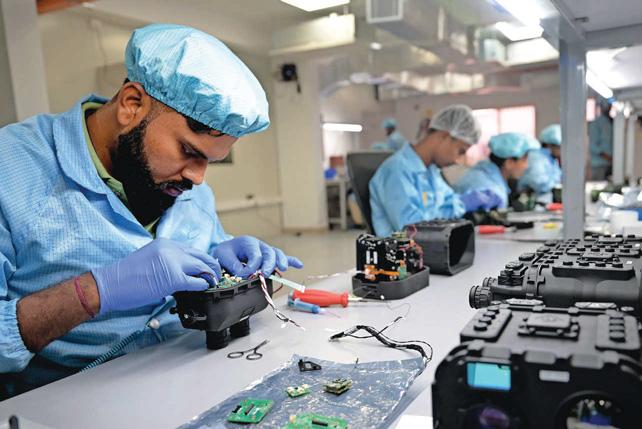
India has the world’s third largest startup ecosystem, but arguably the world’s largest defence startup ecosystem. This amazing transformation happened in the last five to six years. In February 2018, the ministry of defence introduced a draft defence production policy with ambitious goals—triple defence industry turnover to 01.75 lakh crore and increase defence exports nearly 15-fold to 025,000 crore by 2025. It is in this policy that startups were envisioned to foster an innovation ecosystem.
Very few believed that startups could significantly impact defence needs. Innovation for Defence Excellence (iDEX) was launched in April 2018 by Prime Minister Narendra Modi, marking a significant policy initiative. It established open startup challenges, later termed Defence India Startup Challenges (DISC), aligned with the requirements of the Indian armed forces. Startups were invited to offer solutions and the most promising ones received financial support of up to 01.5 crore, contingent on achieving milestones and matched or higher investment from the startups.
Around this time, an unexpected request arrived at the defence ministry from the US embassy— they sought collaboration with an Indian startup specialising in military swarms, a technology they found unique and compelling. This surprised the ministry, accustomed to being the seeker rather than the sought-after, especially with respect to the US. As secretary, defence production, I delved deeper into the matter, consulting with ministry officials and armed forces officers who were equally unaware of this startup and its groundbreaking innovations. My curiosity led me to the founder, who was a retired Indian Air Force officer. He revealed his futile attempts to engage with the ministry and the IAF. Meeting him was enlightening—it reinforced my belief in the potential of startups and their inventive teams to drive India's defence innovation ambitions forward.
This story is from the {{IssueName}} edition of {{MagazineName}}.
Start your 7-day Magzter GOLD free trial to access thousands of curated premium stories, and 9,000+ magazines and newspapers.
Already a subscriber ? Sign In
This story is from the {{IssueName}} edition of {{MagazineName}}.
Start your 7-day Magzter GOLD free trial to access thousands of curated premium stories, and 9,000+ magazines and newspapers.
Already a subscriber? Sign In

Hat-Trick Or Has-Beens?
India look to win their third straight Test series in Australia, but ageing superstars and recent humiliation at home have cast a shadow on their hopes

Constipation Can Put Your Heart At Risk
PEOPLE WITH CONSTIPATION have an increased risk of major cardiac events, including heart attack, stroke and heart failure, especially if they also have high blood pressure, finds an international study published in the American Journal of Physiology-Heart and Circulatory Physiology.

Too Much Sitting Can Accelerate Ageing
SITTING FOR EXTENDED PERIODS can harm the heart and accelerate ageing, even if you are young and get the minimum recommended amount of daily exercise, according to a US study published in the journal PLOS One.

Efficiency and innovation
As health care evolves, professionals must employ innovative methods to refine their skills

Level up
Only 30 per cent of needy patients are able to undergo transplant in India; we need more dedicated transplant centres

HOPE STEMS FROM A CELL
While stem cell therapies have shown success in treating blood disorders, orthopaedic ailments, autoimmune diseases and eye issues, there is hope that they can one day treat patients with heart disease, blindness, Parkinson's, HIV, diabetes and spinal cord injuries

Mind matters
Your mindset can limit or expand your physical ability

Cutting edge
Would you go under the knife if a robot was the one holding it? Or would you say, \"No way, I need a human touch\"? You might have to decide soon because a robot that can imitate skilled human surgeons is already here.

The smallest cut
Minimally invasive surgeries have a bright future, with virtual reality and 3D procedures offering greater precision and AI on the horizon

Signalling a revolution
Canadian scientist and entrepreneur Sachdev Sidhu is focused on bringing cutting-edge antibody engineering to his country of origin